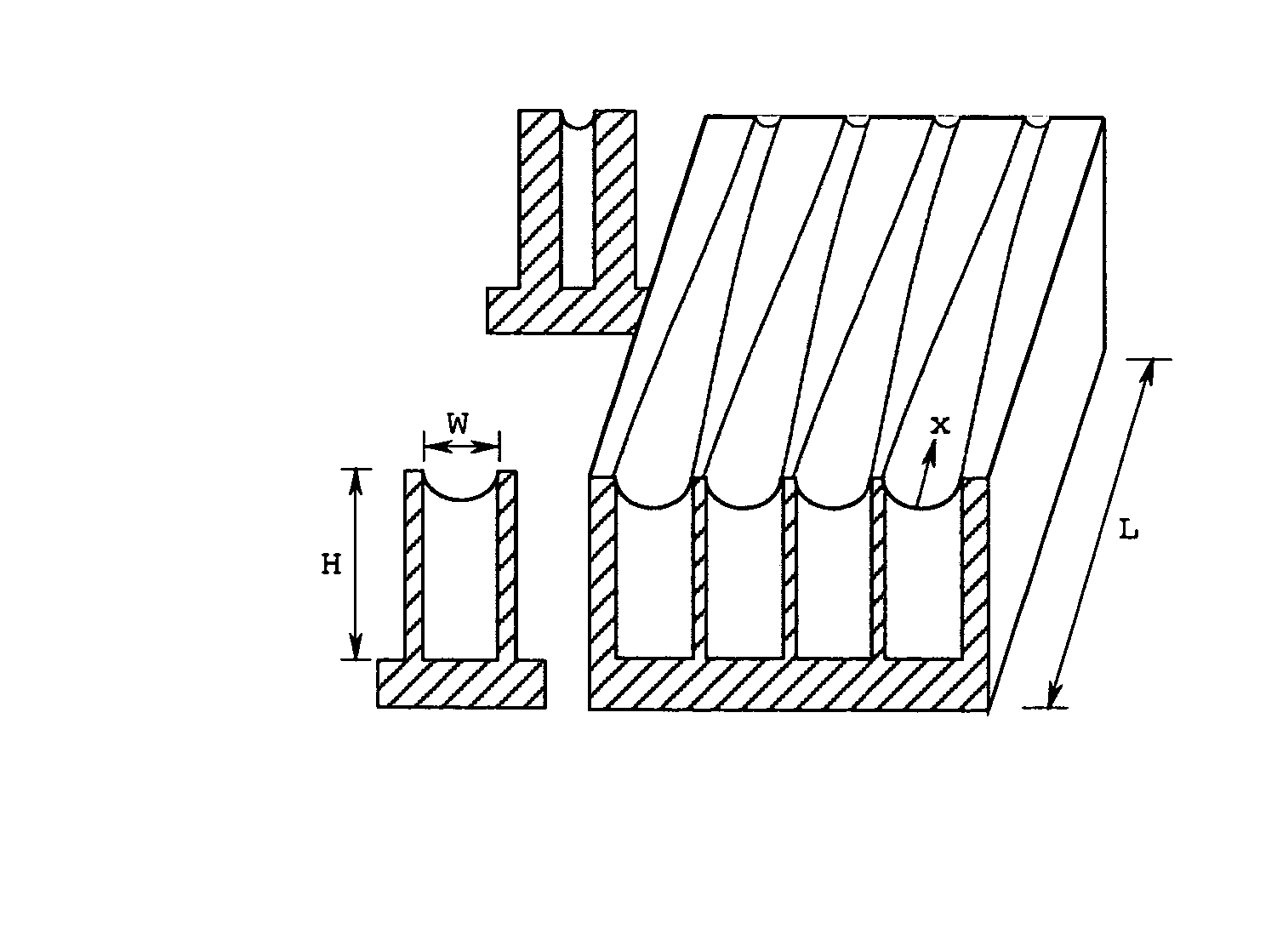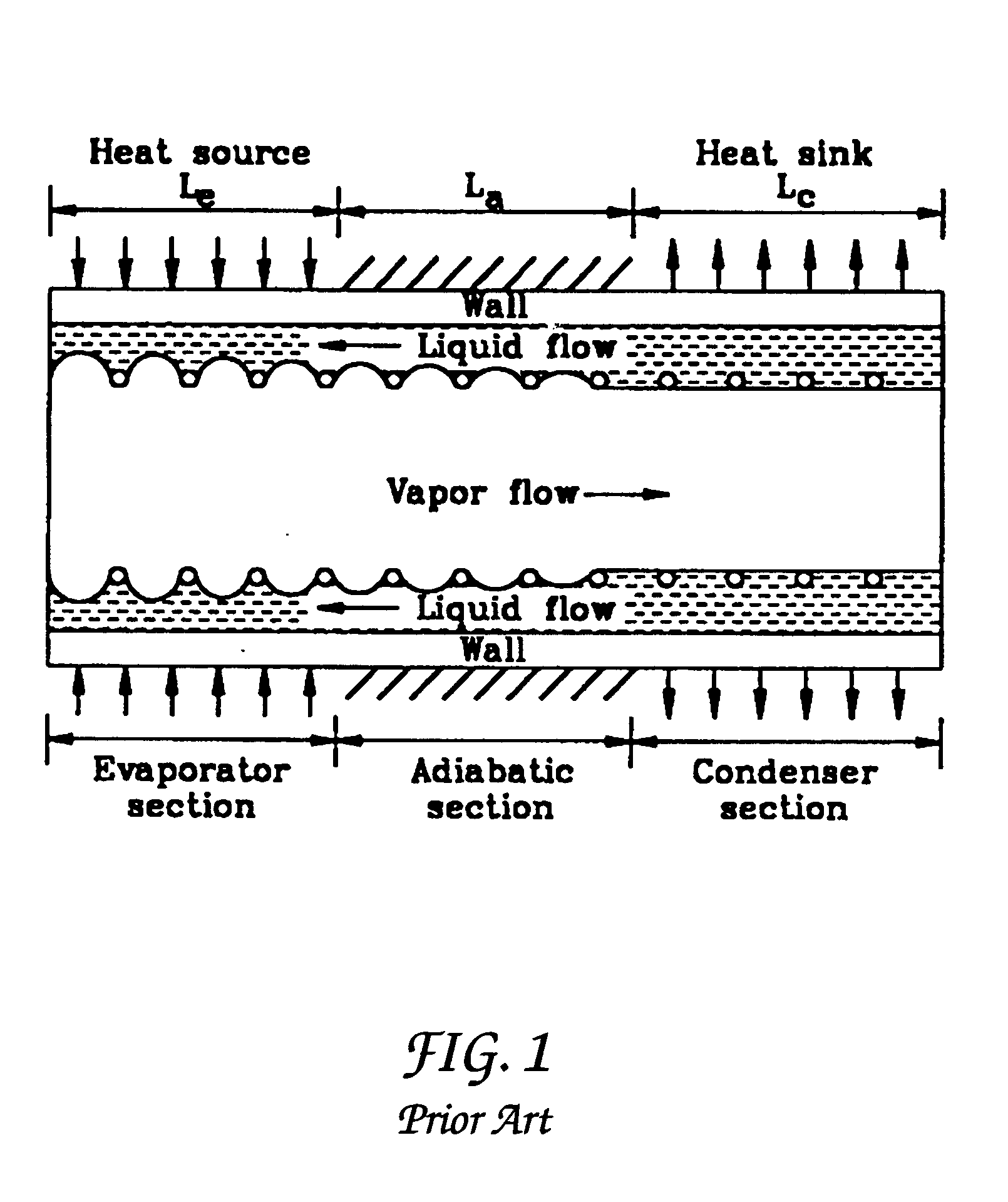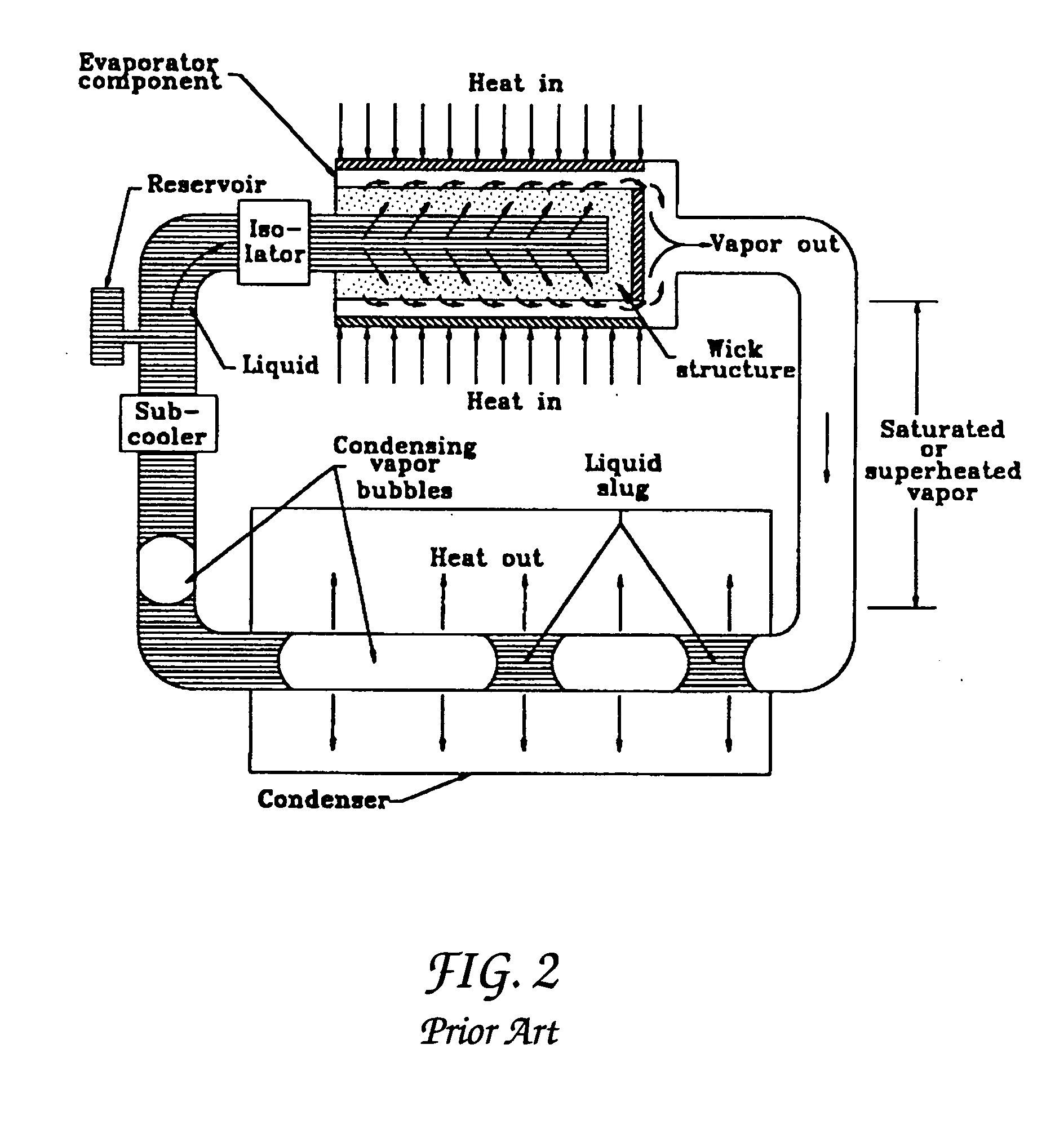Axially tapered and bilayer microchannels for evaporative coolling devices
a cooling device and evaporative technology, applied in the direction of power cables, cables, lighting and heating apparatus, etc., can solve the problems of greater viscosity friction, greater frictional resistance, and slower liquid transport through the wick ra
- Summary
- Abstract
- Description
- Claims
- Application Information
AI Technical Summary
Benefits of technology
Problems solved by technology
Method used
Image
Examples
Embodiment Construction
[0036] The simplest embodiment of this invention is an axially tapered microchannel formed into the body of a thermally conductive substrate member and having a flow cross-section that narrows in width along the intended flow path, as illustrated in FIGS. 4A through 4C. Such channels have no dead zone; they can be fabricated by lithographic processes such as LIGA, and they generally perform much better than prior art triangular grooves or straight rectangular channels. Through mathematical modeling it is shown here that the maximum sustainable heat flux for a tapered channel may exceed that of a comparable triangular groove by a factor of three to six. Tapered channels, such as those shown in FIG. 4A, also provide much more robust performance than straight rectangular channels by a three to four fold increase in their ability to overcome opposing gravitational forces. FIGS. 4B and 4C illustrate cross-sectional views of a representative channel at opposite ends of its length. When ap...
PUM
 Login to View More
Login to View More Abstract
Description
Claims
Application Information
 Login to View More
Login to View More - R&D
- Intellectual Property
- Life Sciences
- Materials
- Tech Scout
- Unparalleled Data Quality
- Higher Quality Content
- 60% Fewer Hallucinations
Browse by: Latest US Patents, China's latest patents, Technical Efficacy Thesaurus, Application Domain, Technology Topic, Popular Technical Reports.
© 2025 PatSnap. All rights reserved.Legal|Privacy policy|Modern Slavery Act Transparency Statement|Sitemap|About US| Contact US: help@patsnap.com



